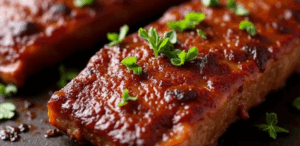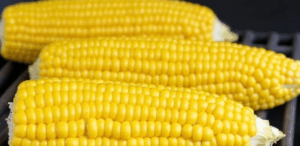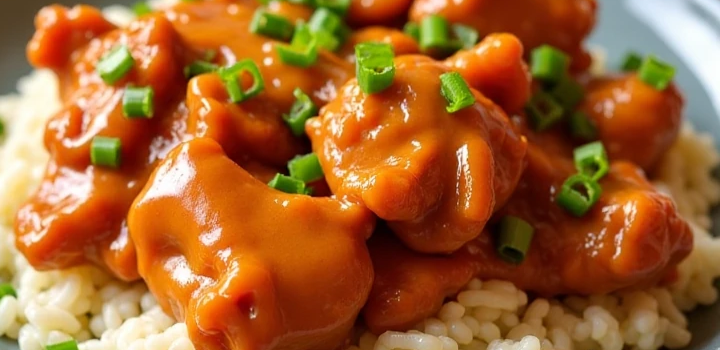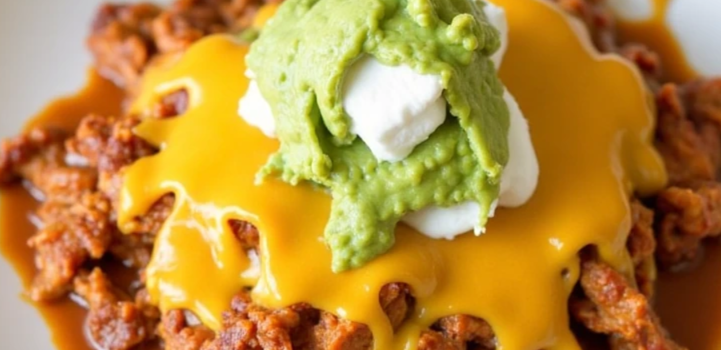Cook Black Beans in Instant Pot
How to Cook Black Beans in an Instant Pot: Quick and Easy Method

As a professional chef who uses the Instant Pot both at work and at home, I can say with confidence that cooking black beans in it is one of the simplest and most efficient methods available. With just a few ingredients and very little hands-on time, you can create tender, flavorful beans that work in dozens of dishes. Whether you’re preparing them whole or mashed, spiced or plain, let me walk you through everything—from temperature settings and cooking times to flavor variations and dish ideas.
- Ingredients for Whole Black Beans in the Instant Pot
- Cooking Times and Temperature Settings
- Cooking Black Beans in Parts (Mashed, Chunky, Whole)
- Seasonings and Flavor Combinations
- Nutritional Value of Black Beans
- How to Cook a Diet-Friendly Version
- First Course Ideas Using Instant Pot Black Beans
- Main Course Dishes Using Black Beans
- Alternative Methods for Cooking Black Beans
- Storage and Reheating
- 15 FAQ About Cooking Black Beans in the Instant Pot (From My Kitchen Experience)

Ingredients for Whole Black Beans in the Instant Pot
Basic Ingredients
- 1 cup dry black beans (unsoaked)
- 3 cups water or low-sodium vegetable broth
- 1 bay leaf (optional)
- 1 tsp salt (added after cooking)
- 1 tbsp olive oil (optional, helps reduce foaming)
Optional Add-ins for More Flavor
- 1 small onion, halved
- 2 garlic cloves
- 1 tsp ground cumin
- 1 tsp paprika or smoked paprika
- 1 dried chili or chipotle pepper for smoky flavor
Cooking Times and Temperature Settings
Cooking Whole Beans
- Setting: Pressure Cook / Manual
- Pressure Level: High Pressure
- Time: 30 minutes (unsoaked beans)
- Natural Pressure Release: 15-20 minutes
For Softer Beans (for mashing or soups)
- Time: 35-40 minutes on high pressure
- I always recommend adjusting depending on the age and quality of the beans.
If You Soak Beans (6-8 hours soak)
- Cook on High Pressure for just 10-12 minutes
- Natural release for 10-15 minutes

Cooking Black Beans in Parts (Mashed, Chunky, Whole)
Whole Beans (Best for salads, rice bowls)
After cooking, strain the beans and toss with olive oil, lime juice, and fresh cilantro.
Mashed or Refried-Style Beans
Mash cooked beans with some reserved cooking liquid. Sauté with garlic, cumin, and a little chili powder in olive oil for a simple refried version.
Chunky Stew Beans
After pressure cooking, stir beans with diced tomatoes, corn, and peppers and simmer on sauté mode for 10 minutes.
Seasonings and Flavor Combinations
Classic Latin Flavor
- Cumin, garlic, onion, bay leaf, salt, pepper
Spicy and Smoky
- Chipotle in adobo, smoked paprika, cayenne, oregano
Herb-Infused
- Fresh thyme, rosemary, or bay with lemon zest
From my kitchen, I’ve learned that adding whole onion halves and garlic cloves imparts a gentle aromatic base without overpowering the beans.

Nutritional Value of Black Beans
| Preparation Style | Calories (per 1 cup) | Protein | Fiber | Fat |
| Plain cooked (no oil) | 227 kcal | 15g | 15g | 0.9g |
| Cooked in broth & spices | 240 kcal | 15g | 15g | 2g |
| Refried with oil | 270 kcal | 14g | 13g | 5g |
| Diet version (water, no salt) | 220 kcal | 15g | 15g | 0.5g |
How to Cook a Diet-Friendly Version
If you’re preparing a lean or diet-conscious meal, skip the oil and salt, and use water or a salt-free vegetable broth. I often finish them with lemon juice, fresh herbs, and a dash of cumin. Serve with steamed veggies or brown rice for a balanced, fiber-rich meal that keeps you full.

First Course Ideas Using Instant Pot Black Beans
Black Bean Soup
Use cooked beans, blend with broth, sautéed onions, and spices. Add lime juice and chopped cilantro for a fresh finish. I often add a roasted tomato for extra depth.
lack Bean Salad
Cool the beans and mix with corn, bell peppers, red onion, lime juice, and a drizzle of olive oil. This works beautifully as a starter.
Main Course Dishes Using Black Beans
Black Bean Tacos
Mash beans, season with cumin and garlic, and spread in tortillas with avocado and salsa. It’s my favorite quick lunch.
Veggie and Black Bean Bowls
Serve beans over quinoa or rice with roasted vegetables, greens, and tahini dressing. Perfect for meal prep.
Chili with Black Beans
Add cooked beans to your favorite chili base. I like mixing black beans with red kidney beans for extra texture.

Alternative Methods for Cooking Black Beans
Microwave
Not ideal for dry beans, but great for reheating. I microwave with a splash of broth and cover with a lid to retain moisture.
Slow Cooker
Cook on LOW for 6–8 hours or HIGH for 3–4 hours with water and seasoning. I usually skip soaking, but increase the liquid slightly.
Multicooker (Non-Instant Pot)
Similar to Instant Pot—use high pressure for 30 minutes, natural release. Make sure to check brand-specific instructions.
Stovetop
Simmer soaked beans for 1.5 to 2 hours. Keep the pot partially covered and stir occasionally.
Oven Method
Bake soaked beans in a Dutch oven at 325°F for about 2 hours. Add aromatics for deeper flavor.
Clay Pot or Crock
I’ve used traditional clay pots to slow cook beans—it gives an earthy flavor. Cook soaked beans with plenty of water for 2–3 hours at low oven heat (around 300°F).
Storage and Reheating
Let the beans cool completely before transferring to airtight containers. They last up to 5 days in the fridge or 3 months in the freezer. I recommend storing them with some of the cooking liquid to keep them moist.
To reheat, simmer on the stove or microwave with a splash of broth or water. Avoid drying them out.
15 FAQ About Cooking Black Beans in the Instant Pot (From My Kitchen Experience)
Do I have to soak black beans before cooking?
From my experience, soaking is optional. I rarely soak unless I want to reduce cook time. Instant Pot handles unsoaked beans just fine.
Why are my beans still hard after pressure cooking?
I’ve learned that old beans take longer to cook. Try adding 10 more minutes and ensure you’re doing a full natural release.
Can I double the recipe in the Instant Pot?
Yes. I often cook double batches—just keep the water-to-bean ratio consistent and don’t fill above the max line.
Can I use canned beans instead?
You can, but I always recommend starting with dry beans for better texture and flavor. Plus, they’re more affordable.
Should I salt beans before or after cooking?
Always salt after cooking. I’ve found early salting makes the skins tough and unevenly cooked.
Why add oil to the pot?
I add a tablespoon of oil to prevent foaming and clogging the pressure valve. It’s a small detail that helps a lot.
Can I add tomatoes during cooking?
I avoid acidic ingredients like tomatoes until after the beans are cooked—they can slow down the cooking process.
What’s the best bean-to-water ratio?
For every 1 cup of beans, I use 3 cups of water or broth. That’s been the sweet spot in my kitchen.
Can I freeze black beans after cooking?
Absolutely. I freeze them in 1-cup portions with a bit of liquid. They thaw quickly and taste freshly made.
How do I make beans creamier?
After pressure cooking, I simmer them on sauté mode uncovered for 10 minutes. This concentrates the broth and gives a creamy texture.
What Instant Pot size is best for beans?
I use a 6-quart model for 1–2 cups of beans. Larger pots work too, but smaller models may overflow if not watched closely.
Do beans expand much during cooking?
Yes—they triple in volume. I always allow room in the pot for expansion and bubbling.
How do I avoid mushy beans?
Use natural pressure release and avoid stirring too early. I let them rest before handling.
Can I cook different beans together?
I don’t recommend it unless they have similar cook times. Some beans break down faster than others.
Can I reuse bean cooking liquid?
Yes! I often use it in soups, stews, or rice for a flavor boost. It’s full of nutrients and bean flavor.







